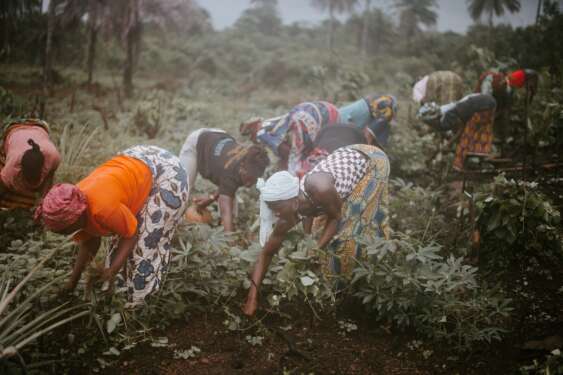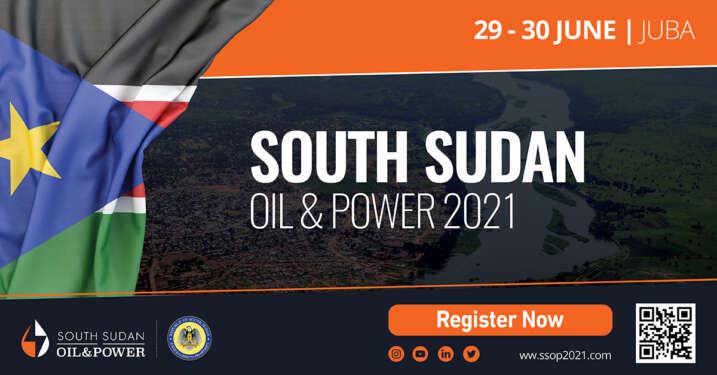- Abu Dhabi radiates optimism as over 300 startups join AIM Congress 2024
- TLcom Capital Raises $154 million in Funding to Boost Its African Growth
- Africa’s $824Bn debt, resource-backed opaque loans slowing growth — AfDB
- LB Investment brings $1.2 trillion portfolio display to AIM Congress spotlight
- AmCham Summit kicks off, setting course for robust future of US-East Africa trade ties
- Why the UN is raising the red flag on the UK-Rwanda asylum treaty
- Portugal’s Galp Energia projects 10 billion barrels in Namibia’s new oil find
- Wärtsilä Energy offers tips on how Africa can navigate energy transition and grid reliability
Author: Opinion
Concerns about the pandemic especially with new fast spreading mutations, heightened political activity and uncertainty around the shape of business and economic recovery continues weighing heavily on risk asset pricing in the local market.
The distribution of vaccines is off to a slow start especially in the developed countries while locally, news flow indicate vaccines will be available later this month than as previously indicated.…
Debt service is putting tremendous pressure on East African governments because of limited foreign exchange earnings; therefore the Covid-19 vaccination program for East Africa will give investors confidence in most sectors especially agriculture and tourism which are major foreign exchange earners for the region.
The foreign exchange gains will lead to a positive trickle-down effect to the different businesses and general population.…
English sea-faring merchants would pay banks to cover them in case of a shipwreck and if the ship returned safe from its journey the bank would keep the premiums.
A premium so paid covers the cost of insuring the individual and provides assurance to the insured that in the event of a loss he/she will be covered.…
Across the Global South, agriculture is essential to livelihoods for the majority of women at the base of the pyramid (BOP). Modernising agribusiness value chains in climate-smart ways will be a key element in building emerging economies, combating food and income insecurity, and mitigating the impacts of climate change. This modernisation must take a gender-progressive approach, which requires a shift in the investment landscape to better integrate gender, from capitalising women-led companies to ensuring women farmers are empowered across the value chain. Not only are such approaches vital to SDG 5 (Gender Equality), they are directly relevant to climate action and building sustainable economies.
The impact of climate change on agricultural production has been well-documented, from the shifts in average temperatures and rainfall patterns to ozone and mineral concentrations in the atmosphere and soil – but the relationship goes both ways. Agriculture is a significant driver of climate change, with …
The coronavirus disease of 2019 (COVID-19) pandemic gripped the world with shock and overwhelmed the health care systems of most nations. The World Health Organization (WHO) declared the novel human coronavirus disease (COVID-19) outbreak, which began in Wuhan, China on December 8, 2019, a Public Health Emergency of International Concern (PHEIC) on January 30, 2020, with over seven million cases globally as of June 7, 20201.
In July 2020, over 663,000 confirmed Covid-19 cases were recorded in Africa with more than 343,000 recoveries and 14,000 deaths. 324,211 cases were recorded in South Africa with 4,699 deaths, followed by 34,854 confirmed cases in Nigeria and 769 deaths, 26,125 confirmed cases and 139 deaths in Ghana. Countries currently with the lowest cases in the region are Gambia, Seychelles and Eritrea. Southern Africa is the most affected area across the continent in terms of positive Covid-19 cases and Northern Africa closely …
With a view to nation-building and inclusive growth, South Sudan is seeking investment in hydrocarbon exploration, infrastructure development and power generation capacity, with opportunities to be showcased at the upcoming South Sudan Oil & Power 2021 Conference & Exhibition in June.
South Sudan represents one of the fastest-growing frontier markets on the continent, driven by a renewed transitional government with a commitment to economic growth, infrastructure development and an oil revival. Led by H.E. President Salva Kiir, the newly formed unity government is prioritizing infrastructural development and exploration activities, with a view to rebuilding the nation, improving the standard of living and driving associated job and economic opportunities. With a critical infrastructure deficit and growing demand for alternative power generation solutions, South Sudan is characterized by its unique opportunity to build the domestic energy sector – and country – from the ground up.
South Sudan is currently the only commercial …
In the last century, the fashionable and accepted route to success for young Africans was to complete their education and join the corporate world. A few university students aspired to become entrepreneurs; most educational institutions did not offer entrepreneurial programs. With few exceptions, African families used to guide their children to join a leading multi-national or work for a state institution, hoping they would climb the corporate ladder to become CEOs or at least senior management. That was prestigious until the paradigm shifted to tech entrepreneurship with the emergence of the computer, mobile and Internet industry in the latter part of the 20th century. Whilst a lot of African families have built successful entrepreneurial ventures in the past, this essay emphasis the growing move of corporates to tech entrepreneurship.
The likes of Dr. Nii Narku Quaynor who started Network Computer Systems (NCS) in 1988 and played a key role …
Kenya’s agriculture has beaten the odds of a difficult 2020 to end on a high, having registered one of the best growth trajectories across key segments in a long time.
Indeed these fortunes are attributable to fairly good weather and unprecedented coordination in delivery of inputs and services as witnessed during the Covid-19 lockdown when President Kenyatta on advice from the private sector placed agriculture among the essential services to be exempted from curfew. Not even the invasion of desert locusts early in the year and the hovering around of the pest dampened farm production. The government and private sector players quickly assembled an assault which, together with nature, subdued arguably the most dreaded crop insect.
The horticulture sector has registered a 140 per cent growth, up from 115 per cent the previous year in a season everyone expected a shrink in the general slow economic turnaround …
The last decade (2010-2020) was an important experiment in African tech ventures moving out of the “labs” and becoming real businesses that saw investors backing them with so much capital that from 2014 to 2019, the total number of VC deals doubled every year until the advent of COVID-19, which disrupted global economic activities in 2020.[1] However, 2020 saw some notable exits including World Remit’s acquisition of Sendwave for $500M[2], Network International buying DPO for $288M[3] and Stripe taking over Paystack for $200M[4] to enter the African market as Egypt’s Fawry gain unicorn status.[5] The IPO of Fawry the third Africa tech venture reach market capitalization of over $1 billion to after Jumia[6] and Interswitch[7] was overs subscribed 30 times. 2020 ended with another notable exit, with two initial shareholders in Ghanaian fintech startup, Zeepay, exiting from an initial investment of about …
African countries cannot leapfrog their way into industrialization. Yes, there was a telecommunications jump largely bypassing landlines to mobile phones in the early 2000s, but internet penetration is still low at 36%. Other sectors of many African economies are stagnating. For instance, electricity is a foundational requirement for industry, manufacturing enterprises, for doing business, for running hospitals, schools, and for improving the quality of life at home. Yet over 600 million Africans still lack access to reliable and affordable electricity. This further depresses business productivity and generating their own power increases the operating expenses of companies. More broadly, the objectives of the landmark African Continental Free Trade Area to boost intra-African trade are severely hampered by the limited transportation options to facilitate the affordable and efficient movement of people, goods, and services from one country to another. The lack of adequate water and sanitation presents overwhelming and adverse health …












